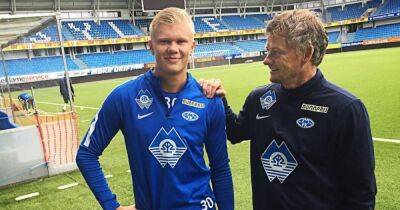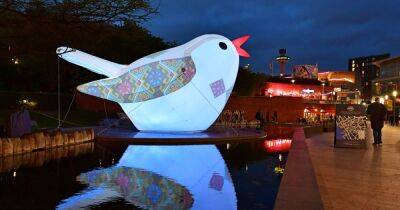How schools and industry are working together for the future of Europe's blue economy
The island of Frøya off Norway's rugged western coast is known for some of the world's best conditions for growing salmon.
It's also home to Guri Kunna — a pioneering school that, for decades, has been teaching kids as young as 16 to work in the fish farming industry.
Hundreds of girls and boys come here to learn everything a fish farmer needs to know today, including how to pilot a boat and take care of the fish at the real salmon farm — just a short sea trip away from the school.
"Back when I was in 10th grade, someone told me that professionals in this field were going to be in high demand, that this sector is the future. And I enjoy working out at sea, so I decided to study aquaculture," said Sunniva Elise Johansen, a student at Guri Kunna.
"The teachers guide us through everything in the first year of the programme, but in the second year, we work more independently. That way, we can get ready for our apprenticeships at an aquaculture company over the next couple of years."
The success of this school's program has inspired BRIDGES, a European-funded project that improves collaboration between schools and the industry to boost skill development in the aquaculture sector across four Nordic countries.
"The sector needs skilled workers," explained Dag Willmann, the project coordinator at BRIDGES.
"When we started to work with Iceland some years ago, they were almost desperate – no education, this industry is in low populated areas, so they needed education — fast! The BRIDGES project aims to develop the schools to be kind of hubs to foster this growth in skilled workers," he revealed.
The school's classrooms and laboratories are located right next to industrial companies in a single aquaculture cluster. This helps the








